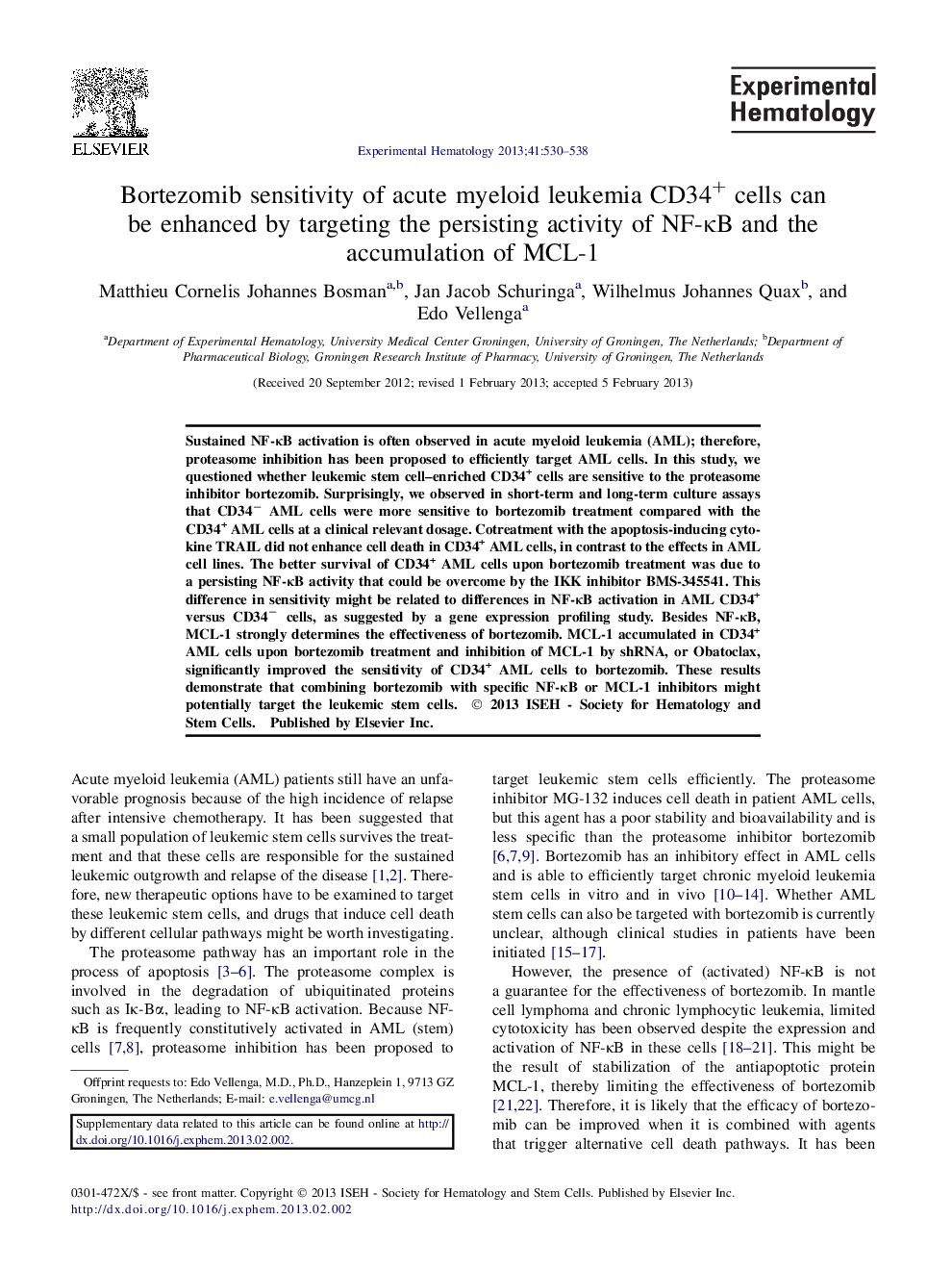| Article ID | Journal | Published Year | Pages | File Type |
|---|---|---|---|---|
| 10907408 | Experimental Hematology | 2013 | 10 Pages |
Abstract
Sustained NF-κB activation is often observed in acute myeloid leukemia (AML); therefore, proteasome inhibition has been proposed to efficiently target AML cells. In this study, we questioned whether leukemic stem cell-enriched CD34+ cells are sensitive to the proteasome inhibitor bortezomib. Surprisingly, we observed in short-term and long-term culture assays that CD34â AML cells were more sensitive to bortezomib treatment compared with the CD34+ AML cells at a clinical relevant dosage. Cotreatment with the apoptosis-inducing cytokine TRAIL did not enhance cell death in CD34+ AML cells, in contrast to the effects in AML cell lines. The better survival of CD34+ AML cells upon bortezomib treatment was due to a persisting NF-κB activity that could be overcome by the IKK inhibitor BMS-345541. This difference in sensitivity might be related to differences in NF-κB activation in AML CD34+ versus CD34â cells, as suggested by a gene expression profiling study. Besides NF-κB, MCL-1 strongly determines the effectiveness of bortezomib. MCL-1 accumulated in CD34+ AML cells upon bortezomib treatment and inhibition of MCL-1 by shRNA, or Obatoclax, significantly improved the sensitivity of CD34+ AML cells to bortezomib. These results demonstrate that combining bortezomib with specific NF-κB or MCL-1 inhibitors might potentially target the leukemic stem cells.
Related Topics
Life Sciences
Biochemistry, Genetics and Molecular Biology
Cancer Research
Authors
Matthieu Cornelis Johannes Bosman, Jan Jacob Schuringa, Wilhelmus Johannes Quax, Edo Vellenga,
